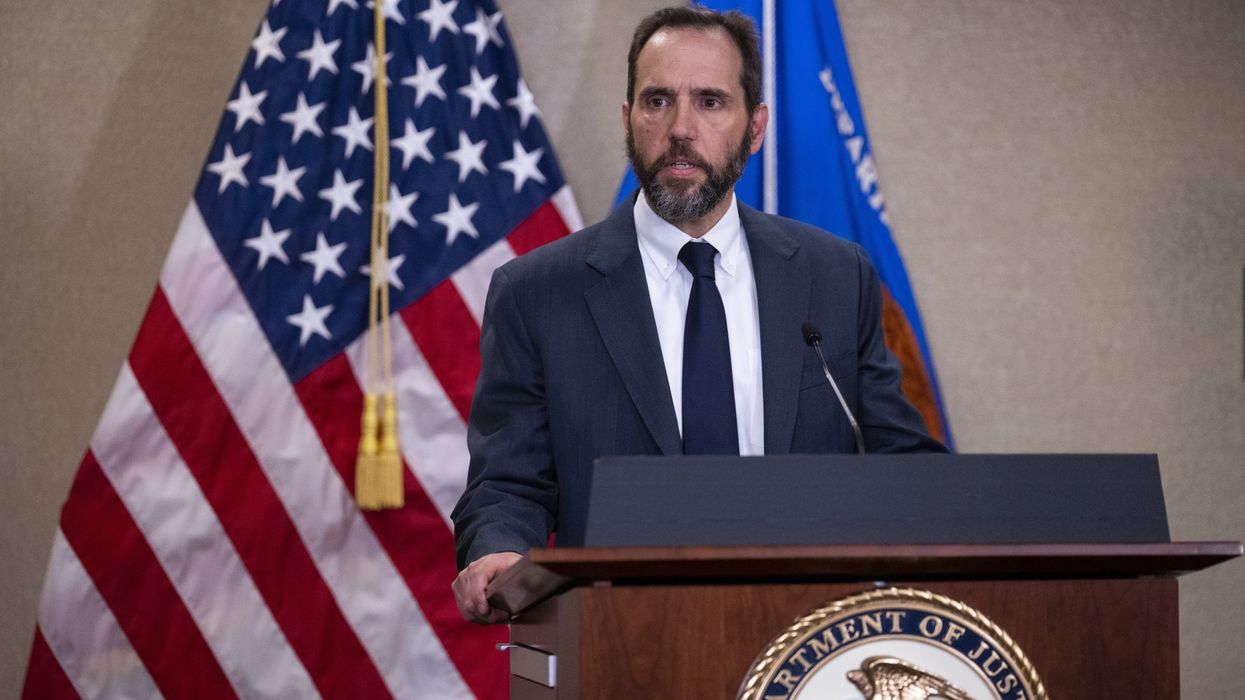‘No More Hiding’: House Dems Vow to Hammer GOP With More Votes on Destructive Trump Tariffs
"We will keep holding Republicans accountable for raising prices on families and fighting to end Trump’s senseless trade war," said Rep. Suzan DelBene.
The House of Representatives on Wednesday passed a resolution to overturn President Donald Trump's tariffs on Canada, and Democratic lawmakers are vowing to keep the pressure on their Republican counterparts.
The House voted to roll back Trump's Canada tariffs by a margin of 219 in favor to 211 against, with six House Republicans crossing the aisle to back the measure. Among Democrats, only Rep. Jared Golden (D-Maine) voted in favor of keeping the tariffs in place.
According to Politico, the vote on ending Canadian tariffs was just the start of a number of votes House Democrats have planned aimed at rolling back the president's taxes on imported goods.
"Senior House Democrats plan to call up at least three more resolutions that will force many Republicans to choose between protecting their tariff-hit districts and pleasing their MAGA voter bases," Politico wrote, "not to mention their loyalties to a president who has, up until this week, not tolerated any House GOP dissent on the matter."
In an interview with Axios, Rep. Gregory Meeks (D-NY) said that he planned to push a resolution overturning Trump's tariffs on Mexican goods next.
Rep. Suzan DelBene (D-Wash.) released a statement celebrating the vote to repeal the Trump tariffs, while warning her Republican colleagues that there will be "no more hiding" on the issue.
"This is the first vote to restore congressional authority and repeal Trump’s tariffs," she said. "We will keep holding Republicans accountable for raising prices on families and fighting to end Trump’s senseless trade war. The Senate must now take up this measure."
In a video posted on social media, Rep. Don Beyer (D-Va.) outlined the damage that Trump's tariffs have caused both to US consumers and international relations with longtime allies.
"Canada has been our close friend and ally for more than 200 years," Beyer explained. "Donald Trump promised to lower the cost of living, but his tariff regime is doing the exact opposite. These tariffs have done nothing but hurt the American people."
Trump's tariffs crushed our economy, raised prices, and alienated our allies.
Republicans passed rules preventing the House from voting to stop him.
We defeated that 'gag rule' last night, and now we're voting on ending Trump's tariffs on Canada.
Here's why I'm voting YES: pic.twitter.com/cwbOT2apKQ
— Rep. Don Beyer (@RepDonBeyer) February 11, 2026
Ontario Premiere Doug Ford hailed the vote to end the tariffs and expressed hope that it was the start of better relations between the US and Canada.
"Thank you to every member from both parties who stood up in support of free trade and economic growth between our two great countries," he wrote. "Let’s end the tariffs and together build a more prosperous and secure future."
Trump, however, has shown no signs of backing down and vowed to support primary challengers against any Republicans who joined with Democrats to roll back his tariffs.
"Any Republican, in the House or the Senate, that votes against TARIFFS will seriously suffer the consequences come Election time, and that includes Primaries!" Trump wrote in a Wednesday Truth Social post.


